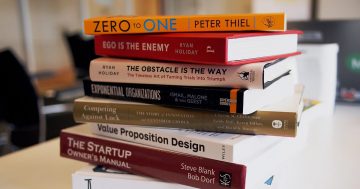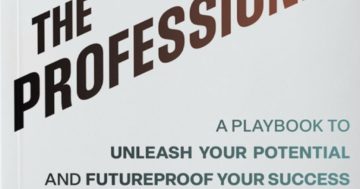
How can you make life more productive at work? Photo: File.
Nicole Byers outlines her Productivity Formula — a guide to working to your strengths wherever possible and minimising the tasks that cause boredom or stress.
I’m no stranger to taking on more than is humanly possible. As a high achiever with big goals and a passion for learning, I like taking on new projects.
That’s great, until my to-do list ends up being a mile long and I’m feeling constantly stretched for time.
When that happens, I start to feel overwhelmed. Those projects that used to excite me, that were part of my productive zone of activity, start slipping into my stress zone.
You might be wondering what I’m talking about with these zones, so I’ll introduce you to what I call the Productivity Formula, and how I use this to make those tough decisions about where I spend my time and energy.
You can use this system to make prioritising easier when you feel overwhelmed with your to-do list.
The idea behind the Productivity Formula is that we all have tasks on our to-do list that fill us with energy and motivation, that we love to do and we’re good at.
There are also tasks on our to-do list that drain our batteries and zap our time and energy. The goal is to identify where each task on your to-do list falls in this formula and what zone it lands in.
The area where you want to spend as much time as possible is the productive zone. These are the tasks you love to do, that you could spend all day doing and make you love your career and your life.
For me, the tasks that fall in my productive zone include writing articles for journals, teaching students in my programs, and speaking.
The zone where we often get stuck is the busy zone. These are tasks that are fun to do, but you’re either not that good at them, or they’re not really moving the needle.
It’s easy to get stuck in the busy zone because it feels like we’re being productive, because we’re busy all day, but these tasks zap our time and energy.
For me, this is social media. It’s fun to create new posts and videos for Instagram, but if I’m being honest, it’s not my strength.
Email often falls in our busy zone. It feels like we’re getting a lot done, but all of a sudden you’ve been at your computer for an hour and haven’t checked anything off your to-do list.
The next zone we want to minimise is the bored zone. These are tasks you’re good at but you don’t like doing them. Some of the paperwork and reports I have to do in my clinical practice fall here. I’m good at it, but it isn’t that exciting.
Finally, the stress zone — the tasks that drain your batteries and which you aren’t good at, so you’re not very efficient. Anything technology-related falls here for me. As soon as we have a tech hiccup, I can feel my stress level go up just thinking about dealing with it.
I know we can’t spend all our time on productive zone tasks. We all have parts of our jobs or businesses that are necessary but we don’t love doing them.
If you’ve ever had one of those days where the time rushed by, all of a sudden it’s the end of the day, you still have energy left and you’re excited to keep working — chances are you’ve been in your productive zone most of the day.
Those days where time drags, you’re looking at the clock every few minutes, or you get to the end of the day and you’re exhausted — you’ve probably been working mostly in one of the other zones.
What is the productive zone for me might be the stress zone or a bored zone for someone else, and vice versa. We all have strengths, and we all have unique tasks that we love to do and those we don’t like to do.
Learning your own strengths and weaknesses is the key to making the productivity formula work for you. Tasks can change zones depending on your current priorities.
Maybe right now a productive zone task is working on that big project that you want to get done in the first quarter, but tomorrow your kid has a school play and that’s productive zone priority work that day.
Priorities can change, and that’s a good thing. What’s important is recognising when tasks shift in your brain. To do that, I recommend paying attention to how tasks make you feel.
Here’s my challenge to you: Take a look at your to-do list and ask yourself whether there’s anything that has moved out of your productive zone.
Something you used to enjoy that you were so excited to start, but it’s just not working for you anymore. Give yourself permission to let that thing go if needed, or at least take a break to allow your brain to recharge.
Nicole Byers is a psychologist with expertise in clinical psychology and neuropsychology. She is the founder of Rocky Mountain Neurosciences and is the host of The Bold Life podcast.











